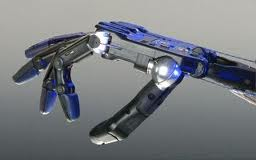There is obviously high levels of interest in distribution center automation in the face of huge challengers in recruiting and retaining DC labor and rapidly rising labor costs, on top of generous signing bonuses from many companies.
Supply Chain Digest Says... |
|
|
Another factor: surging ecommerce orders during the pandemic, rapidly increasing the number of more costly “piece picks” for many companies.
FedEx certainly felt the pain last summer. In July, the company said that in its recently ended fiscal quarter it incurred $450 million extra costs due to the on-going labor shortage. FedEx said the lack of labor led to increased overtime, higher wages to attract workers and extra spending on expedited transportation. The company cited the specific example of a sorting hub in Portland, OR, that had 65% of the workers needed to handle the normal number of packages that go through that facility. FedEx also said it is raising pay levels and paying premiums for weekend shifts to try to attract more workers.
In the face of all that, deployment of DC robots might be a quite attractive option. In fact, in the summer of 2020 FedEx had announced that it had installed four robotic arms to work the line at a sortation center in Memphis.
With the widespread interest in DC robotics, so called autonomous mobile robots (AMRs) have gained more prominence than robotic arms for sortation or piece picking. That is certainly in large part because of the challenge of piece picking – hundreds or even thousands of different products with different sizes, shapes and weights, requiring different “angles of attack.”
But progress continues to be made – mostly on the software side with use of artificial intelligence-enabled smarts combned with advances in robot vision sytems.
Last week, the Wall Street Journal ran a story on how athletic shoe and clothes maker Puma North America has deployed several robotic arms to pick and place into shipping carton SKUs for order fulfillment at a distribution center in Torrance, California.
Puma plans to install more robot arms from Nimble Robotics at another site near Indianapolis. The robots include a combination of cameras, grippers and AI to select items from storage bins, from where they are automatically transported to workstations in a so-called “goods to person” design.
The Journal piece says that the robots reach 99% picking accuracy, about equal to that seen by human pickers, and can run for two straight shifts before serving is required.
(See More Below)
|
CATEGORY SPONSOR: SOFTEON |
|
|
| |
|
|
 That piece also described how 3PL GXO Logistics using a robotic arm and vision system for an order fulfillment process at a distribution center in the Netherlands. That piece also described how 3PL GXO Logistics using a robotic arm and vision system for an order fulfillment process at a distribution center in the Netherlands.
The system from Austrian automation provider Knapp AG and AI startup Covariant is being used for an GXO apparel client. It places manually picked items in an overhead sorting system that stores them and then ensure that they get to a human packer working on an order at the same time, in a "goods to picker" system design.
The GXO system also uses mobile robots to work collaboratively with human pickers.
“The development opportunity is to be able to link the three things together” (the picking arm, the AI-enabled ability to identify and grasp objects, and mobility), Phil Shaw, operations director for GXO Logistics Europe, told the Journal, adding that “To move that down the aisles, that’s the future.”
While the technology is advancing rapidly and seeing real deployments, don’t expect a robotic piece picking revolution imminently.
“The pace of adoption is still evolving,” Hasan Dandashly, CEO of automation company Dematic, told the Journal. “I don’t think we are on the verge of not having human pickers anytime soon.”
Do you have any opinon on robotic piece picking? Let us know your thoughts at the Feedback button below (email) or in the Feedback section.
|